MIDDY POTTER, Rocks and Curves
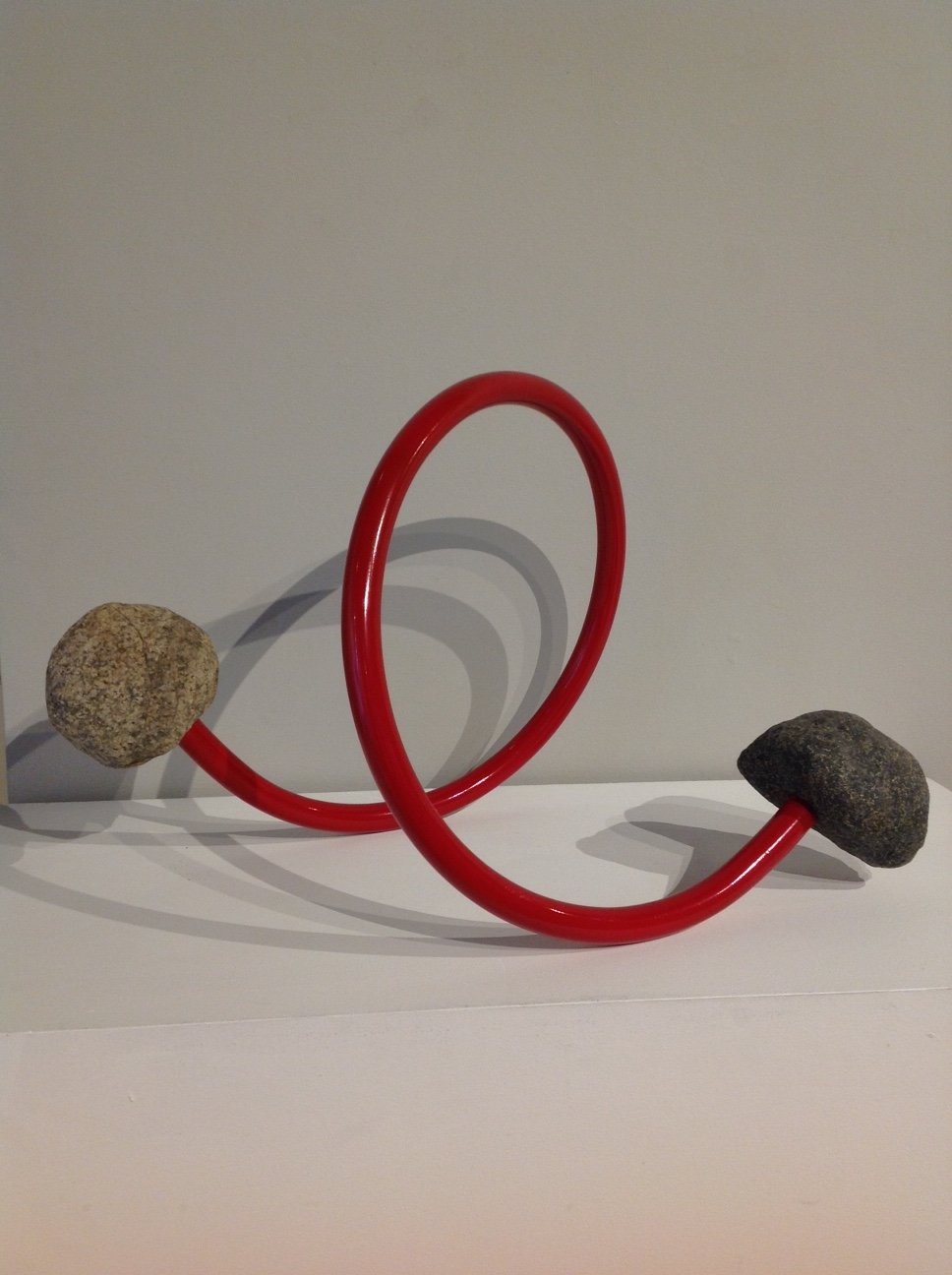
Twist of Rock Red, stone, copper tubing
I recently had a conversation with Middy Potter about his new show at WSG gallery. Here are some of the things I learned in our interview:
Q: Your last show, Springs and Things, was a joyful assembly of materials, techniques and ideas. Your show before that used math as a jumping-off point and had many riffs on that theme. This new show, “Curves and Rocks”, continues to explore your love of form and of the act of ‘making’. What was the most fun part of getting ready for the show?
Middy: The most fun part of getting ready for this show was making the sculptures. I really
enjoy going into my shop and making things.
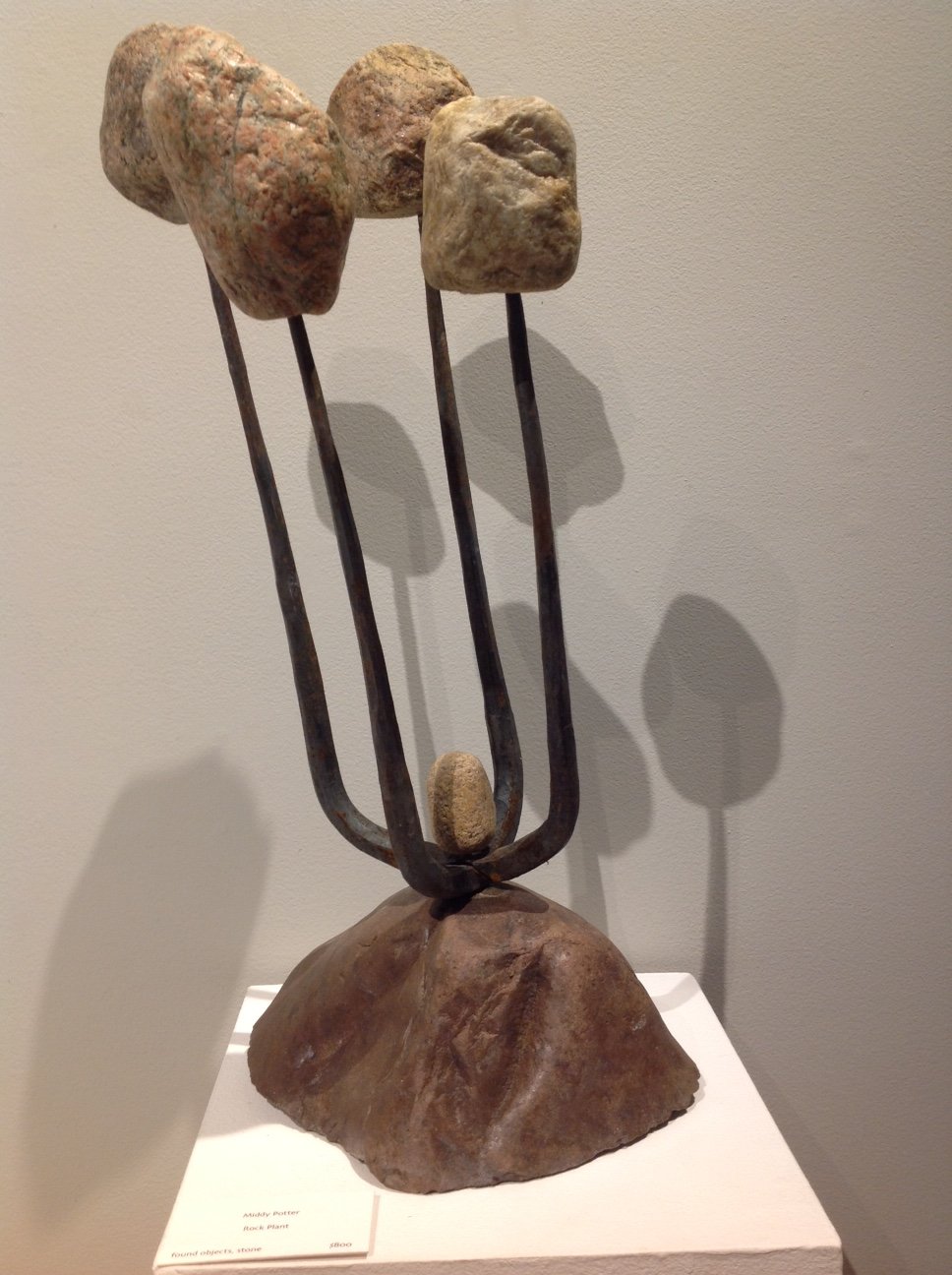
Rock Plant, found objects, stone
Q: I was admiring the cut stones – heck, small boulders – in some of your pieces. What tool do you use to cut those and what are some of the trickiest things about cutting rocks and, in particular, rocks of that size?
Middy: The tools used to cut and drill holes are as follows. Generally the stone is cut with
a 14” diamond blade on a handheld gasoline powered masonry saw. Sometimes I use an
electric saw, also with a 14” blade, to make more accurate cuts. Both saws use water
to spray the stone to cool and lubricate the blade. Small diamond grinders are used to
dress the cuts. Drilling the larger holes involves using a large percussion hammer drill.
Some of the smaller holes are made using diamond core or abrasive bits. These smaller
bits are very perishable and require constant lubrication and cooling with water. The
smaller holes are much harder to make.
Q: How does your background in Naval Architecture and Marine Engineering affect your approach to creating art?
Middy:
My schooling in engineering taught me a lot on how to solve complex problems.
Designing a ship is an iterative process converging on a solution that takes many, many
small solutions to make a very good large solution. Details count!
So the tools used include lots of math, physics, engineering, law, finance, computer
skills, and so forth. Solving complex problems are interesting and fun for me. All of
these skills make creating art easy and fun.
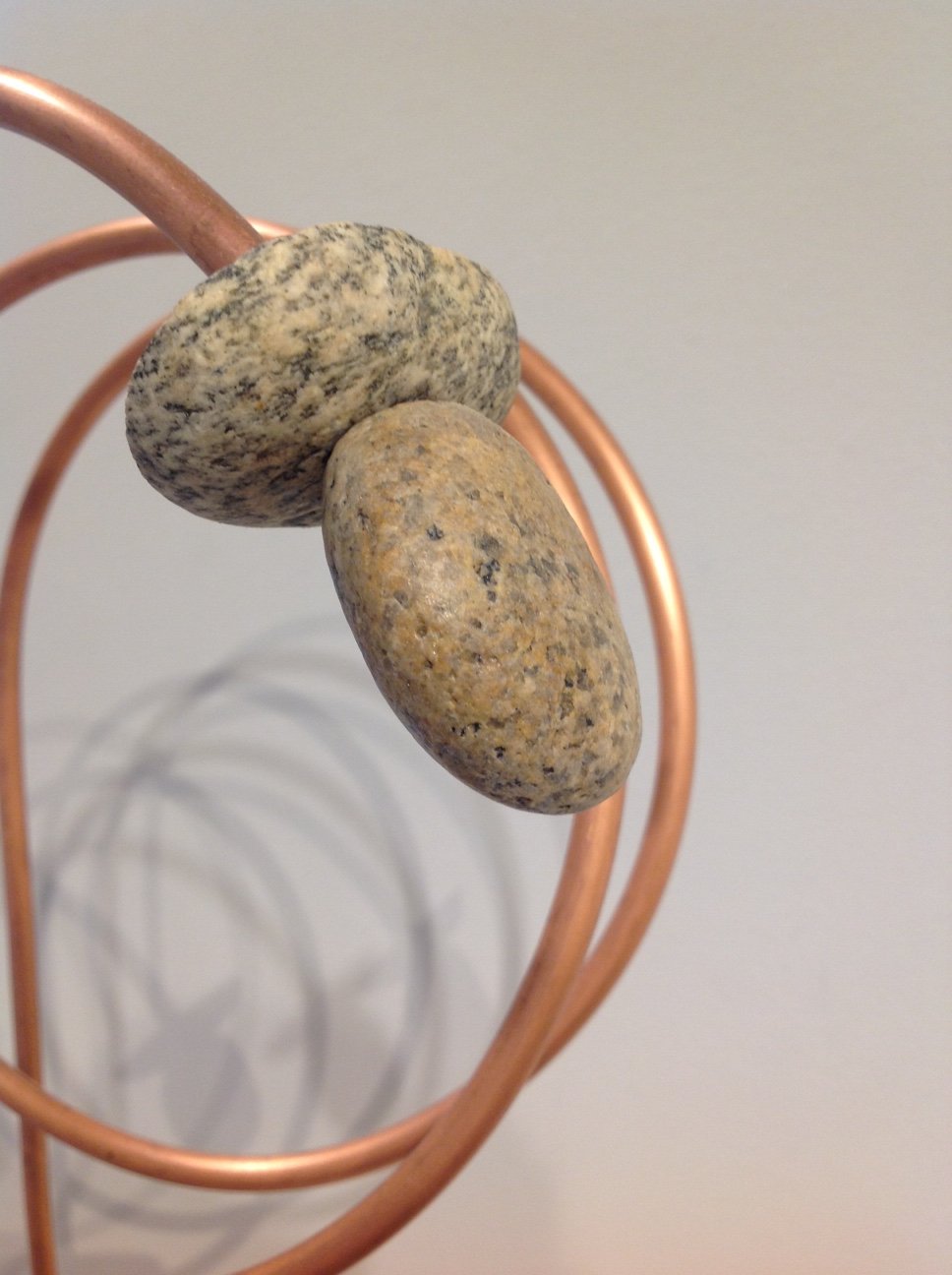
The titles just come to me after very little thought.
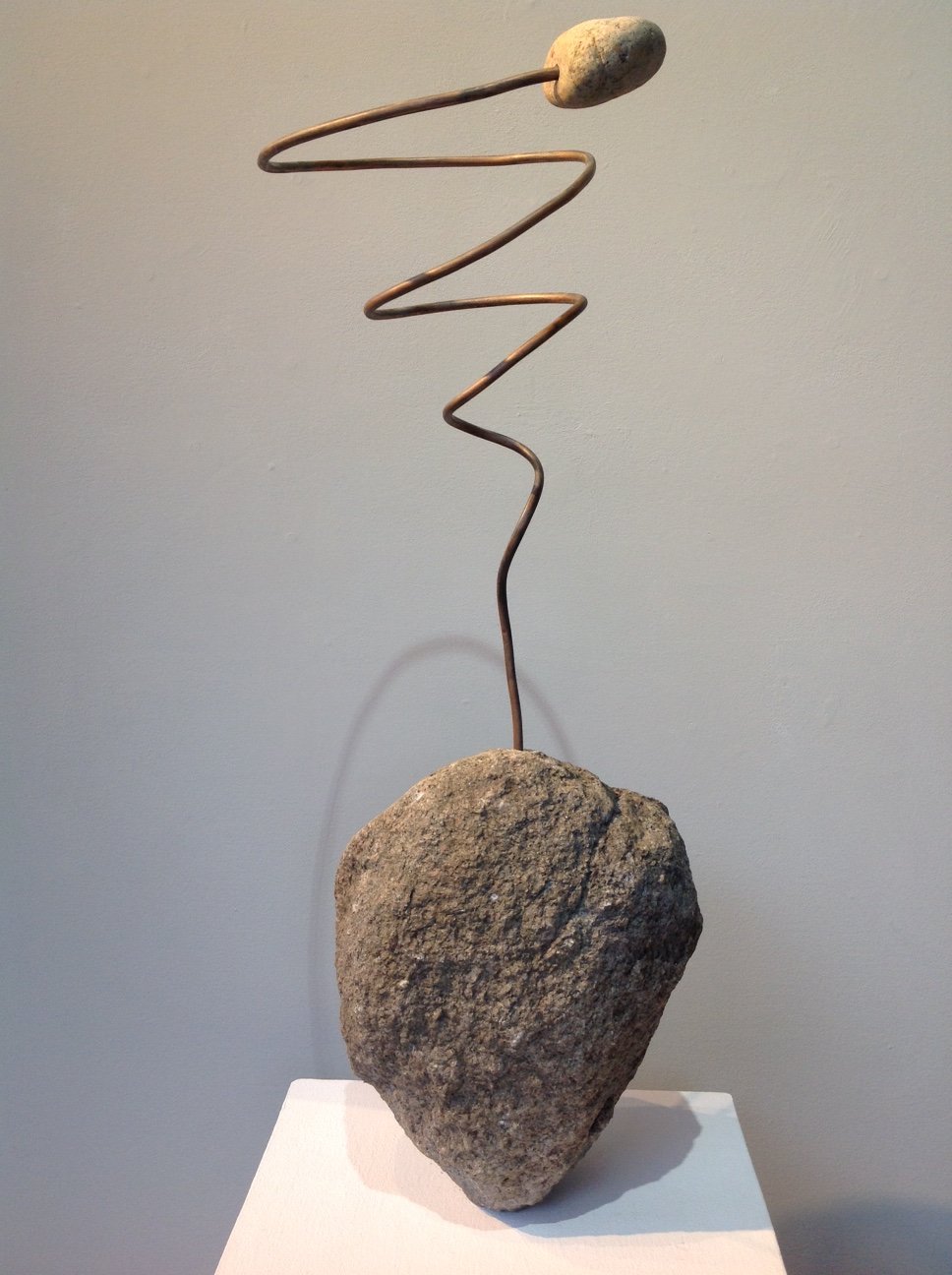
Rock Goes Volute Two, stone, copper tubing
Q: When you decide on a theme for your show, do you come up with the theme first, or do you make a few pieces and sit back to assess whether there’s a common thread you can build on?
Middy:
Selecting a theme is important to me so I can have a show with as you say, a common
thread. I could just make a bunch of unrelated sculptures. Instead I prefer to discover
and explore a new area of art to present as a show. My first steps include discovering a
new technique, maybe a new form, or challenging myself to using some math or science
in a new way. New techniques are very interesting for me, as they allow me to grow.
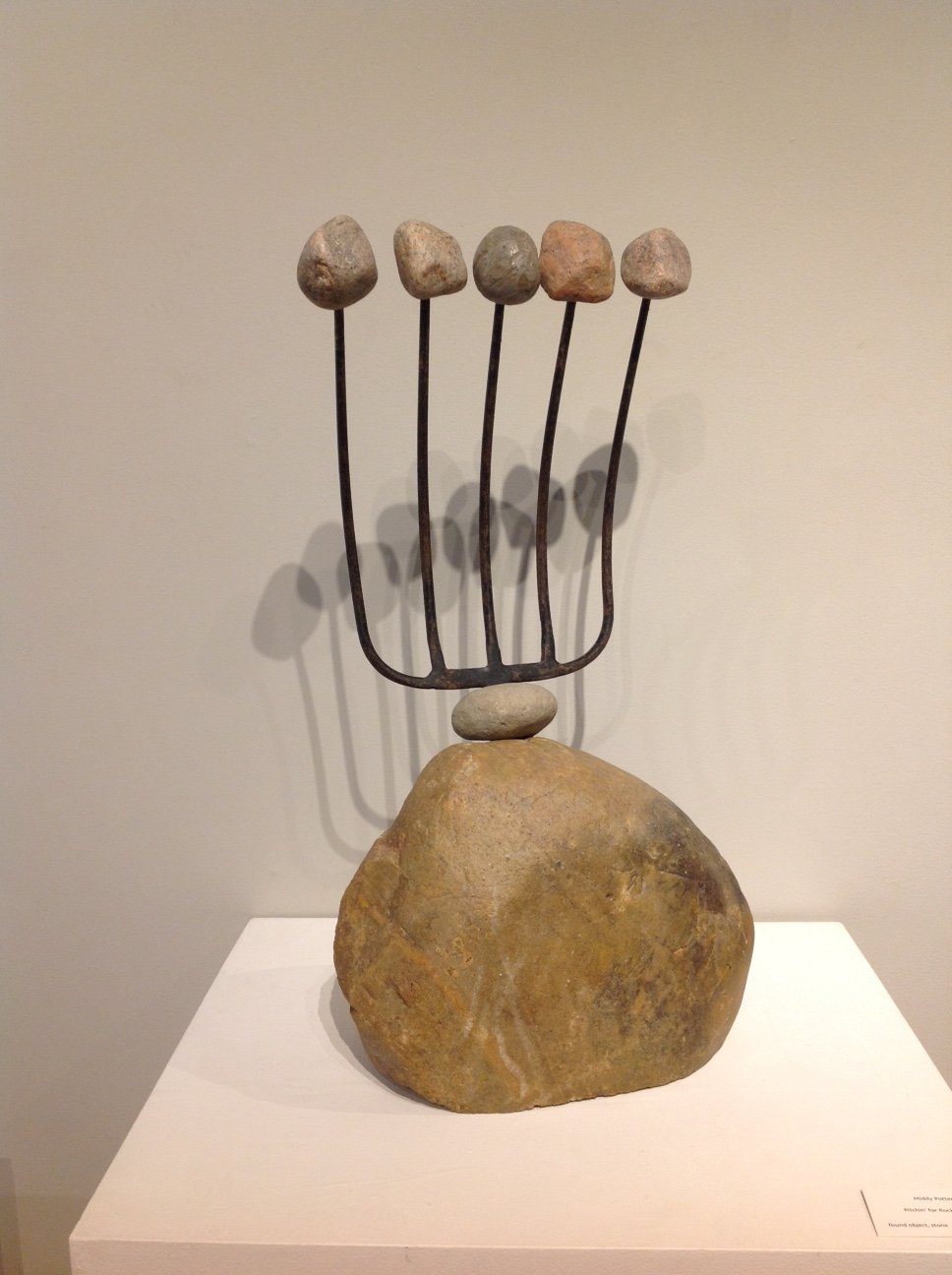
Pitchin’ for Rocks Five, found object, stone
Q: Final words about your show or about what you’d like viewers to look for?
Middy:
I hope the viewers of this show on Curves and Rocks find some fun, find some energy,
and enjoy some simple sculptures made with found and made parts.